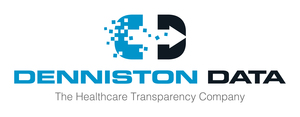HPG Adds a Separate Line Item to Compare Texas Prices to the Transparency in Coverage National Negotiated Rates
CORPUS CHRISTI, Texas, March 16, 2023 /PRNewswire/ -- Denniston Data Inc. (DDI), "The Healthcare Transparency Company," has launched a Texas version of the Official Healthcare Pricing Guide™ (HPG), U.S. Medical Benchmark Prices from Transparency in Coverage and Medicare Data, with the largest and most accurate data available on negotiated medical prices in the U.S.
Texas Has Been Paying Higher Medical Prices than the Rest of the U.S.
The data shows that median medical negotiated rates in Texas are 305% of Medicare rates for outpatient services and 260% of Medicare for inpatient hospital services. The national average is 224% of Medicare, so the outpatient negotiated rates in Texas are 36% higher than the national average. This amount is not commensurate with local costs in Texas, which tend to be lower than national costs.
The Increasing Cost of Healthcare is Threatening Texas's Business-Friendly Reputation
In recent years, Texas has attracted businesses moving from higher cost states. The Texas cost of healthcare can be a threat to that. According to Glenn Hamer, President & CEO, the Texas Association of Business, "I continually hear from employers that the rising cost of health care is unsustainable, and it is an ongoing barrier to providing health insurance to employees. It's been the top concern of business owners in Texas." (Dallas News, 2/24/23)
What Is a Better Benchmark, National Prices, or Local Prices?
The Texas data illustrates that there is a problem in Texas. HPG can be used to correct that problem via negotiations relying on evidence-based benchmark fair prices. The data shows local negotiated price variations far beyond what the difference would be based on local costs. When it comes to benchmarking files for negotiation with providers, the national benchmarks are more accurate. If local pricing differences were driven primarily by local costs, a regional cost multiplier could fix that, but they are not. Local pricing differences are much greater than local costs would dictate. They are based primarily on the ability of some local medical providers with market dominance to steer excessive pricing. Using market-dominant influenced prices as a benchmark only reinforces the problem of excessive medical fees. Rather, using the national tools in the Official Healthcare Pricing Guide™ (HPG) could fix the problem.
Data Is Not Designed for Consumer Use
The HPG data is designed for use by professionals, such as administrators of health plans or providers. The experience with the use of this type of data by patients has not been very successful. According to the Catalyst for Payment Reform (CPR), "Studies continuously demonstrate that even when patients have access to data about prices and quality, they rarely consult or act on it. It has not been possible to turn health plan members into savvy health care consumers." (CPR, 3/9/23) And directing patients to lower cost providers has not caught on either. According to the Kaiser Family Foundation, "A small fraction of public and private employers attempt to curb prices through products and provider networks that aim to connect plan members with lower-cost providers and services. If a critical mass of purchasers adopted these strategies, they could theoretically compel providers to lower their prices, improve efficiency and take other steps to reduce the cost of care. Unfortunately, uptake for these strategies has been vanishingly small: less than 10 percent of employers offer a narrow network, according to the latest survey findings." (Kaiser, 2022)
Texas Can Be a Leader in Healthcare Innovation
The principals of DDI also founded ODG, the evidence-based standard for medical treatment and return-to-work used in workers' comp. Texas was one of the first states to adopt ODG for medical necessity, and after Texas workers' comp outcomes became a successful model, other states followed. Currently in Texas, HB 3351 (Rep. Harris) was just filed to amend the rules regarding Physician Ranking Requirements so that the standards used conform to nationally recognized standards and guidelines as required by rules adopted under Section 1460.005, emphasizing quality of health care. Provider Ranking System™ (PRS), from DDI would meet these criteria. DDI is also working with Rep. Harris on considering a national benchmark for the Texas no surprises act, given that local benchmarks can be disproportionately affected by local dominant providers who may have been charging excessive prices.
About Denniston Data Inc.
The mission of Denniston Data is to bring transparency into provider quality and costs, improving the efficiency and effectiveness of patient care in the U.S. Healthcare system. The principals of Denniston Data have together founded and built multiple enterprises in the healthcare field based on medical database and claims-analytics. Provider Ranking System™ and Healthcare Pricing Guide™ serve the needs of healthcare payers and providers. For more information, please visit https://www.dennistondata.com
Patricia Whelan
Denniston Data Inc.
+1 760-846-4930
SOURCE Denniston Data Inc.

WANT YOUR COMPANY'S NEWS FEATURED ON PRNEWSWIRE.COM?
Newsrooms &
Influencers
Digital Media
Outlets
Journalists
Opted In






Share this article